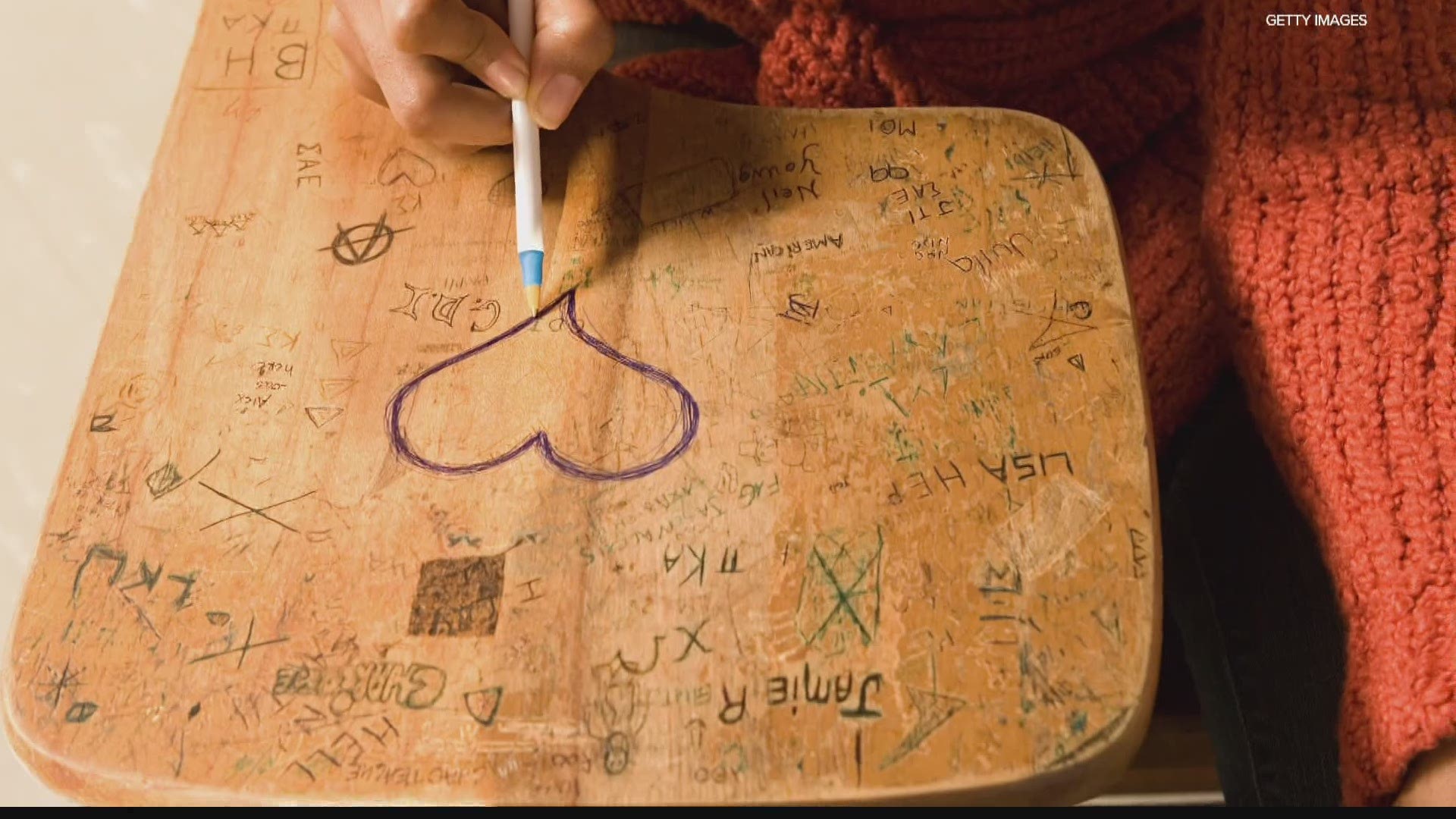GREENWOOD, Ind. — School crushes are part of life for many families and, on Valentine's Day, 13News Education Expert Jennifer Brinker shared advice for parents on how to handle young love.
Dustin Grove: So, it seems like kids are getting boyfriends and girlfriends earlier than ever. How should parents react to this? I’m sure it can catch them off guard.
Mrs. Brinker: I would refer to this first stage of puppy love as "pre-dating." Please remember that these are very formative years that lay the groundwork of future relationships. You don’t want to discredit their feelings or joke about it because they won’t talk to you about it later on when things are more serious. I would suggest talking to your child about why they like this person, and help guide those conversations by pointing out the importance of the other child being kind, a good friend, all the things you will want them looking for in a partner in the future, not just if they are cute or not. You can also tell them about some of your early experiences so they know that you are human, too. It makes you more approachable.
Dustin Grove: So after the pre-dating, what stage comes next?
Mrs. Brinker: The next stage I would call "mini-dating," which is usually taking place from sometime in middle school until early high school. This is the time when kids are possibly going on actual dates and experiencing some of the physical attraction that goes along with their infatuation. It is important again not to belittle this stage because kids will no longer be open to talking to you. This would be a great time to point out some examples of relationships to your child that they see in movies or TV and whether or not those seem like healthy relationships. Talk about the good and bad together so they know how to process this in their own relationships. As silly as it sounds, point out some relationships in shows or movies they watch, and talk about if those are healthy examples or not. Bottom line, kids are taking cues from the media on what is appropriate and what is not — you need to help as those opinions are forming. You also need to have talks about boundaries for your body at this point and what is or is not acceptable for them.
Dustin Grove: So, next comes the big-time-dating. Advice for parents on how to tackle this?
Mrs. Brinker: Well, hopefully you have laid the groundwork so that your child feels that they can come talk to you about relationships before this point. Remember, as a parent, that their head, heart and hormones are not all working appropriately together until usually at least their early to mid-20s. You absolutely have to set boundaries but also keep the judgment at bay when possible. Be open and listen to what they do have to say. It is important to talk about intimacy, as uncomfortable as that is.
Dustin Grove: Final advice?
Mrs. Brinker: We know that kids come from all sorts of backgrounds and family situations, but remember that you are constantly modeling for them what relationships should look like. Make sure you are giving them healthy examples.

